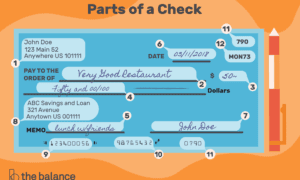In today’s digital-first world, trust is built not just through great service but through secure, compliant, and transparent interactions. One of the most important foundations of this trust—especially in regulated industries—is Know Your Customer (KYC).
Whether you’re onboarding new users in a banking app, verifying identity for an insurance claim, or screening customers on an e-commerce platform, KYC is a non-negotiable step toward ensuring both safety and compliance.
What Is KYC and Why Does It Matter?
Know Your Customer (KYC) refers to the process of verifying the identity of a customer before establishing a business relationship. It’s a legal and regulatory requirement in many jurisdictions, primarily aimed at preventing fraud, money laundering, and terrorist financing.
At its core, KYC ensures that a business knows who it is dealing with—and that the individual is legitimate and not on any sanctions or watchlists.
Modern KYC services go beyond simply checking a government-issued ID. They may include:
- Document verification (passports, ID cards, licenses)
- Biometric checks (facial recognition, liveness detection)
- Address and database validation
- Screening against sanctions and PEP lists
The Growing Need for Robust KYC in 2025
1. Tightening Global Regulations
Financial regulators across the globe have been increasing pressure on institutions to implement more stringent identity checks. From FATF guidelines to GDPR and CCPA, organizations are expected to gather and store customer identity data responsibly—and verify it accurately.
2. Rising Digital Fraud
With the sharp increase in online activity, identity theft and fraudulent account creation are more common than ever. Strong KYC processes act as a frontline defense, catching fake profiles before they can cause harm.
3. Customer Expectations
Today’s users want fast, seamless onboarding—but also expect that their data is handled securely. KYC solutions that combine efficiency with security can improve trust and retention.
Industries That Depend on KYC Services
- Banking & Fintech: To comply with AML regulations and ensure legitimate transactions.
- Cryptocurrency Platforms: A key requirement for exchanges and wallets to remain licensed and compliant.
- Insurance: Verifying policyholders to prevent fraudulent claims and ensure smooth payouts.
- Healthcare: Ensuring patients and professionals are verified for secure data access.
- Online Marketplaces: Preventing misuse and ensuring safe transactions for buyers and sellers.
The Modern KYC Process: Smarter, Faster, Safer
Gone are the days of submitting paper IDs and waiting days for manual checks. Today’s KYC services use a combination of automation, artificial intelligence, and biometric data to complete verification in seconds.
Here’s what a streamlined KYC process looks like:
- Customer Input: The user uploads a document or takes a photo.
- Document Analysis: AI detects authenticity, data accuracy, and tampering.
- Biometric Matching: The person’s selfie is compared to the ID photo for confirmation.
- Database Screening: Names are checked against global watchlists, PEP registries, and blacklists.
- Decision & Recordkeeping: The system logs all activity and either approves, flags, or declines the user.
Benefits of Automated KYC Services
- ✅ Faster Onboarding: Speed up customer sign-up with real-time verification.
- ✅ Improved Accuracy: Reduce human error and false positives with AI-powered checks.
- ✅ Enhanced Security: Detect deepfakes, forgeries, and fraudulent activity before it becomes a problem.
- ✅ Audit-Ready Compliance: Maintain complete logs and reports to meet regulatory requirements.
- ✅ Global Scalability: Support identity verification across multiple regions and document types.
Looking Ahead: The Future of Know Your Customer
As KYC requirements continue to evolve, businesses will need solutions that are flexible, intelligent, and secure. Trends shaping the future of KYC include:
- Biometric-first verification: Moving beyond documents to facial and behavioral biometrics.
- Ongoing KYC (a.k.a. perpetual KYC): Continuous monitoring of customer risk and status changes.
- Integration with digital IDs and wallets: Using government-issued digital credentials for faster verification.
Organizations that adapt to these changes early will be better positioned to grow responsibly and stay ahead of compliance trends.
Final Thoughts: Build Trust with Smarter KYC
A strong KYC process isn’t just about satisfying regulatory requirements—it’s about building safer digital experiences for everyone. Whether you’re a bank, fintech, healthcare provider, or e-commerce platform, ensuring you know your customers is the first step in protecting your business and your users.



































